https://www.youtube.com/watch?v=iG9CE55wbtY
|
21,602,961 views - Jan 7, 2007 https://www.youtube.com/watch?v=iG9CE55wbtY Sir Ken Robinson makes an entertaining and profoundly moving case for creating an education system that nurtures (rather than undermines) creativity.
0 Comments
Over A Thousand People Came Together To Break a Record And Bring This Moving Christmas Hymn To Life.
The Piano Guys, Peter Hollens, David Archuleta, and the Mormon Tabernacle Choir get together to sing "Angels We Have Heard On High". More people are being born without wisdom teeth and an extra artery in their arm as a result of a human "microevolution" in recent years, a study has found.
Babies now have shorter faces, smaller jaws and extra bones in their legs and feet, a study in the Journal of Anatomy found. Australian researchers who worked on the paper claim the human race is evolving faster than it has done at any point in the past 250 years. Over time, human faces have got shorter, which has seen our mouths get smaller, with less room for as many teeth. As part of natural selection and our increased ability to chew food, this has resulted in fewer people being born with wisdom teeth, Dr Teghan Lucas from Flinders University, Adelaide, said. "A lot of people thought humans have stopped evolving. But our study shows we are still evolving - faster than at any point in the past 250 years," she added. An artery in the forearm that supplies blood to the hand has become more prevalent in newborns since the 19th century, the study also found. The median artery used to form in the womb but disappear after the baby was born and the radial and ulna arteries had grown. Now, one in three people keep their median arteries for their whole lives, which poses no health risk and increases blood supply to the hand. Author Professor Maciej Henneberg said: "This is 'micro evolution' in modern humans. "The median artery is a perfect example of how we are still evolving because people born more recently have a higher prevalence of this artery when compared to humans from previous generations." The research was carried out by tracking the rate of retainment of different parts of the body through the generations and dissecting preserved corpses of people born throughout the 20th century. Vic Bishop : Waking Times : 28 Feb 2017 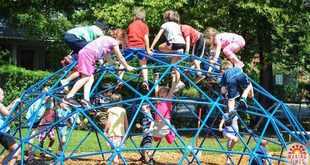 Public education is more stressful than ever for our children, as standardized testing requirements increase and programs like art, music and physical education are being phased out. The result of this type of environment is predictable, and the medical establishment and big pharma are making a killing by drugging active children with ADHD medications and other psychotropic drugs in order to ensure conformity. There are better solutions. Meditation in schools is highly effective at reducing school violence and increasing concentration for learning. Higher quality nutritious and organic foods, rather than processed snack foods and fast foods, when served in school cafeterias are another part of creating an environment more conducive to the needs of children. The most common sense, natural solution to inattentive behavior in school children, however, may be the basic idea of giving children more time to free play and to engage their bodies in physical activity. It's such a simple notion in such unusual times that it actually sounds revolutionary, and several schools in Texas are being hailed for trying a new program which solves behavioral problems by doing nothing more than allowing children to play outside more often during the school day. Simple ideas like this have been proven to work well in places like Finland, where students' test scores improved along with increased play time, a case which serves as the inspiration for a program in Texas schools which have quadrupled the amount of outdoor recreational time, seeing amazing results in terms of overall increase in focus and decreases in distraction and behavioral interruptions. "According to Today, the Eagle Mountain Elementary in Fort Worth, Texas, has been giving kindergarten and first-grade students two 15-minute recess breaks every morning and two 15-minute breaks every afternoon to go play outside. At first teachers were worried about losing the classroom time and being able to cover all the material they needed with what was left, but now that the experiment has been going on for about five months, teachers say the kids are actually learning more because they're better able to focus in class and pay attention without fidgeting." [Source] The key to the success of the program is 'unstructured play' four times a day to break up the physical and mental monotony of the classroom, allowing developing minds and bodies to constructively use their energies, so that their may be more effectively applied in learning. The remainder of this story can be read here.
Karli Petrovic : iQ: 15 Feb 2016 Shocked to learn a braille printer can cost $2,000, preventing many blind kids and adults from being able to read braille, one 12-year-old boy used Legos to create a cost-effective option. When Shubham Banerjee's mother vetoed his initial science fair project idea — an experiment involving colored lights and plant growth — saying he could do better, the then 12-year-old was forced to get creative. Around the same time, Banerjee found a pamphlet requesting donations for the blind. Intrigued, he asked his parents how blind people learned to read. His busy parents directed him to Google. "So I Googled it, 'how blind people read,' and I found out about braille, braille printers, how much they cost," Banerjee said, shocked that a traditional printer was $2,000. "I've been to India a couple times, and I've seen blind people and a lot of poverty everywhere, and it's very hard for them." Banerjee empathized when he and a friend closed their eyes in attempts to navigate the world as if they were blind. "We couldn't walk more than five seconds without thinking there was a pole in front of us," he said. He knew there must be a better way to help the blind see. "I felt like they should not pay over $1,000 just to get what they need to become literate." So he got to work building a better, more affordable braille printer using an unlikely material:Lego Mindstorms EV3. 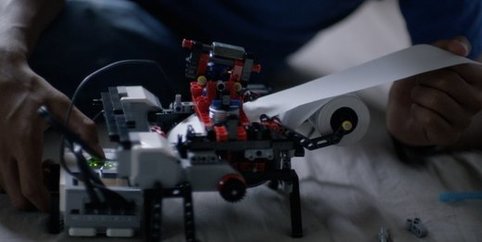 After seven frustrating attempts to modify Lego cars and mechanisms to create holes necessary for braille, he had a breakthrough. Braigo was born. Excited but filled with self-doubt, he called out for his mom. It was 2 a.m. "She was very mad," he said. "I showed it working, and she was really happy. Then she went back to bed." Despite using his entire summer vacation to craft the $350 Braigo, Banerjee knew the machine needed a "better brain." So he built a second version using Intel Edison technology and Python code. "The Edison didn't cost too much, and it had built-in wireless, which was super important," Banerjee explained. "I needed the printer to easily communicate directly with the computer." Banerjee also appreciated the Edison's size, performance and Bluetooth capabilities. When he finished putting the pieces altogether, however, the real reward came from watching other kids use the printer. "Henry [Wedler] tested both my products," Benerjee said. "I printed out, 'Hello, my name is Shubham,' and he could read that perfectly. That was just amazing, and seeing that it really worked...was just the best feeling." It also inspired him to keep working and innovating. "When I saw the braille dots that came out, I started Braigo Labs, a company dedicated to developing 'humanely optimized' technologies that offer affordable solutions to life's most critical problems." RT : 11 May 2015 © Reuters/Max Rossi Pope Francis kisses a child during an audience with the boys and girls of the "Fabbrica della Pace" groups at the Vatican, May 11, 2015. The "industry of death" exists in the world as many people in power live off war, Pope Francis told Italian schoolkids in the Vatican on Monday. "Many powerful people don't want peace because they live off war," the Pontiff said as he met with pupils from Rome's primary schools in the Nervi Audience Hall.
Talking to children during the audience organized by the Peace Factory Foundation, he explained that every war has the arms industry behind it. "This is serious. Some powerful people make their living with the production of arms and sell them to one country for them to use against another country," the Pope was cited by AGI news agency as saying. The head of the Catholic Church labeled the arms trade "the industry of death, the greed that harms us all, the desire to have more money. The economic system orbits around money and not men, women," he told 7,000 kids present at the audience. Despite the fact that wars "lose lives, health, education," they are being waged to defend money and make even more profit, the Pope said. "The devil enters through greed and this is why they don't want peace," 78-year-old Francis said. "There can be no peace without justice," the Pope said and asked the children to repeat those words out loud three times. "Peace must be built day by day and even if, one day in the future, we can say that there will finally be no more wars, then too peace will be built day by day because peace is not an industrial product, it is artisanal: it is built day by day through our mutual love, our closeness," he said. In his April Easter Address, the Pontiff urged to end "absurd" violence, bloodshed and persecution in hotspots around the world. "We ask for peace, above all, for Syria and Iraq, that the roar of arms may cease and that peaceful relations may be restored among the various groups which make up those beloved countries," he told tens of thousands of pilgrims at St. Peter's Square in Vatican. Francis also asked the Lord to "bring light to beloved Ukraine" and called for resuming the "peace process" between Israelis and Palestinians "to end years of suffering and division." By Katy Sewall, Seattle
Inside the box are rows of small objects in clear plastic bags. One label reads: "Black table by feeder. 2:30 p.m. 09 Nov 2014." Inside is a broken light bulb. Another bag contains small pieces of brown glass worn smooth by the sea. "Beer coloured glass," as Gabi describes it. Each item is individually wrapped and categorised. Gabi pulls a black zip out of a labelled bag and holds it up. "We keep it in as good condition as we can," she says, before explaining this object is one of her favourites. There's a miniature silver ball, a black button, a blue paper clip, a yellow bead, a faded black piece of foam, a blue Lego piece, and the list goes on. Many of them are scuffed and dirty. It is an odd assortment of objects for a little girl to treasure, but to Gabi these things are more valuable than gold. She didn't gather this collection. Each item was a gift - given to her by crows. She holds up a pearl coloured heart. It is her most-prized present. "It's showing me how much they love me." “If you want to form a bond with a crow, be consistent in rewarding them” - John Marzluff, Prof of wildlife science
Gabi's relationship with the neighbourhood crows began accidentally in 2011. She was four years old, and prone to dropping food. She'd get out of the car, and a chicken nugget would tumble off her lap. A crow would rush in to recover it. Soon, the crows were watching for her, hoping for another bite. As she got older she rewarded their attention by sharing her packed lunch on the way to the bus stop. Her brother joined in. Soon, crows were lining up in the afternoon to greet Gabi's bus, hoping for another feeding session. You can read the rest of this article at : http://www.bbc.co.uk/news/magazine-31604026 TED Talk : Andrew Solomon: Love, No Matter What What is it like to raise a child who's different from you in some fundamental way (like a prodigy, or a differently abled kid, or a criminal)? In this quietly moving talk, writer Andrew Solomon shares what he learned from talking to dozens of parents — asking them: What's the line between unconditional love and unconditional acceptance?
Andrew Solomon is a writer on politics, culture and psychology. Full bio http://www.ted.com/talks/andrew_solomon_love_no_matter_what Take 12-year-old Dylan Laas, missing his right hand because of something known as Amniotic Band Syndrome, a condition in which parts of the amniotic sack entrap and hamper the development of fetal body parts, most often appendages. Laas now uses a relatively inexpensive, arguably unprecedented hand prosthesis custom-crafted by a 3D printer. ”It looks cool. It makes me look like Darth Vader,” Lass told Yahoo.
What’s next? Van As and Owen want to create DIY kits anyone could buy off the shelf at a store. And while they wait for the design patent to come through, they’re working to fill new requests, like one for a tiny, multi-colored Robohand: “This is for a 2 ½ year old in Australia,” said Van As. Guy Prints Kid New Hand - (3D Printing) Published on 16 Aug 2013
This video is pretty inspirational. A guy who lost his fingers and another creative engineer develop a way to print off hands for kids who've lost their fingers. This device is 3D printed, then the child can use wrist flexors to clasp and unclasp objects in their hand. May sound simple but to the kid it means playing ball and grabbing just about anything that will fit in their hand. Created by MarkerBot. 3D printing, prosthetic hands for kids video, artificial limbs. 3d print machine. Used with permission, creative commons license. Original video located at youtube.com/watch?v=WT3772yhr0o http://www.collective-evolution.com/2013/12/08/how-3d-printing-is-going-to-change-your-life-examining-the-current-innovations/ Sir Ken Robinson on Passion schooloflifechannel .·39 videos : Published on 11 Apr 2013: http://www.youtube.com/watch?v=-M8Hl5MUr8w Sir Ken Robinson* believes that everyone is born with extraordinary capability. So what happens to all that talent as we bump through life, getting by but never realizing our true potential? For most of us the problem isn't that we aim too high and fail - it's just the opposite - we aim too low and succeed. We need to find that magic spot where our natural talent meets our personal passion. This means we need to know ourselves better. Whilst we content ourselves with doing what we're competent at, but don't truly love, we'll never excel. And, according to Ken, finding purpose in our work is essential to knowing who we really are. Get ready to unleash your inner fervor as Ken takes to our pulpit to inspire you to follow your passion. *Sir Ken Robinson is a leader in the development of creativity, innovation and human resources, working with governments and the world's leading cultural organizations. Born in Liverpool, he was Director of The Arts Project (1985-89), and is Emeritus Professor of Education at the University of Warwick. He was knighted in 2003 for his contribution to education and the arts. Recent publications include 'Out of Our Minds: Learning to be Creative' (2001) and 'The Element: How Finding Your Passion Changes Everything' (2009). [He is also a very amusing speaker!] This secular sermon took place at Conway Hall on Sunday 13 March 2011. This poem was nominated by the UN as the best poem of 2008, written by an African child When I born, I black
When I grow up, I black When I go in Sun, I black When I scared, I black When I sick, I black And when I die, I still black And you white fellow .... When you born, you pink When you grow up, you white When you go in sun, you red When you cold, you blue When you scared, you yellow When you sick, you green And when you die, you gray And you calling me colored? Just beautiful. The very best in humanity is Love. Here it is in spontaneous action. Love Zen http://www.zengardner.com/no-greater-love/ Terrific presentation on our profoundly wrong education system and its stifling effect on human creativity…with a lot of fun along the way. Bravo. – Zen http://www.zengardner.com/ |
QUICK INFO
Author:
_Messenger Spirit This section is for interesting items which are brought to my attention but which do not merit a separate article.
I welcome your comments, questions or suggestions on any topics you wish to contribute to this section. Please submit these on the Contact and Feedback Form PLEASE DO NOT SUBMIT COMMENTS ON THE FORM WHICH APPEARS UNDER ITEMS ON 'QUICK INFO'; THIS SYSTEM IS NOT WORKING. Categories
All
Archives
July 2024
|
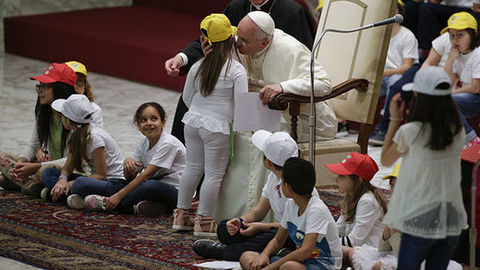
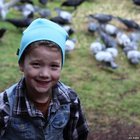
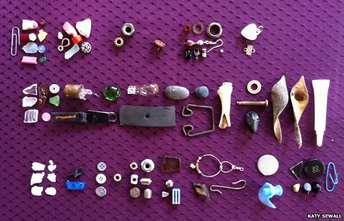
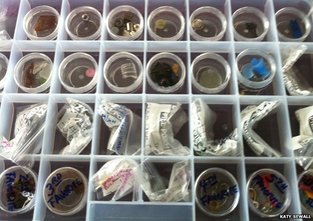
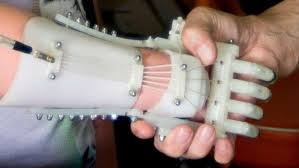
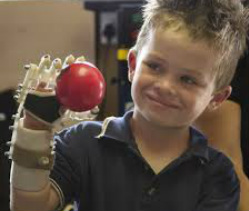
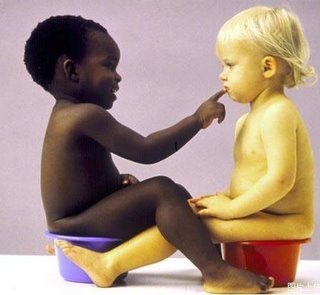
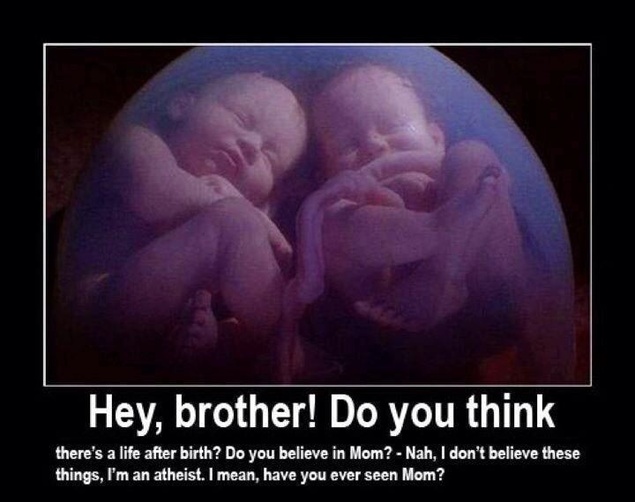
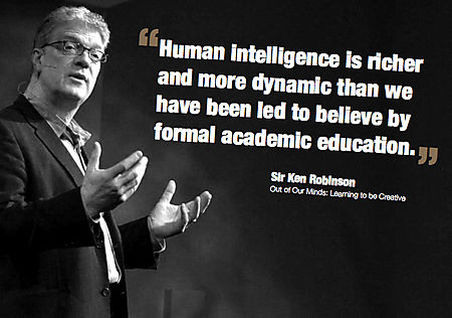
 RSS Feed
RSS Feed